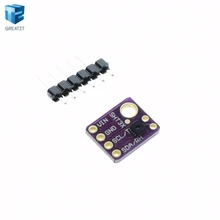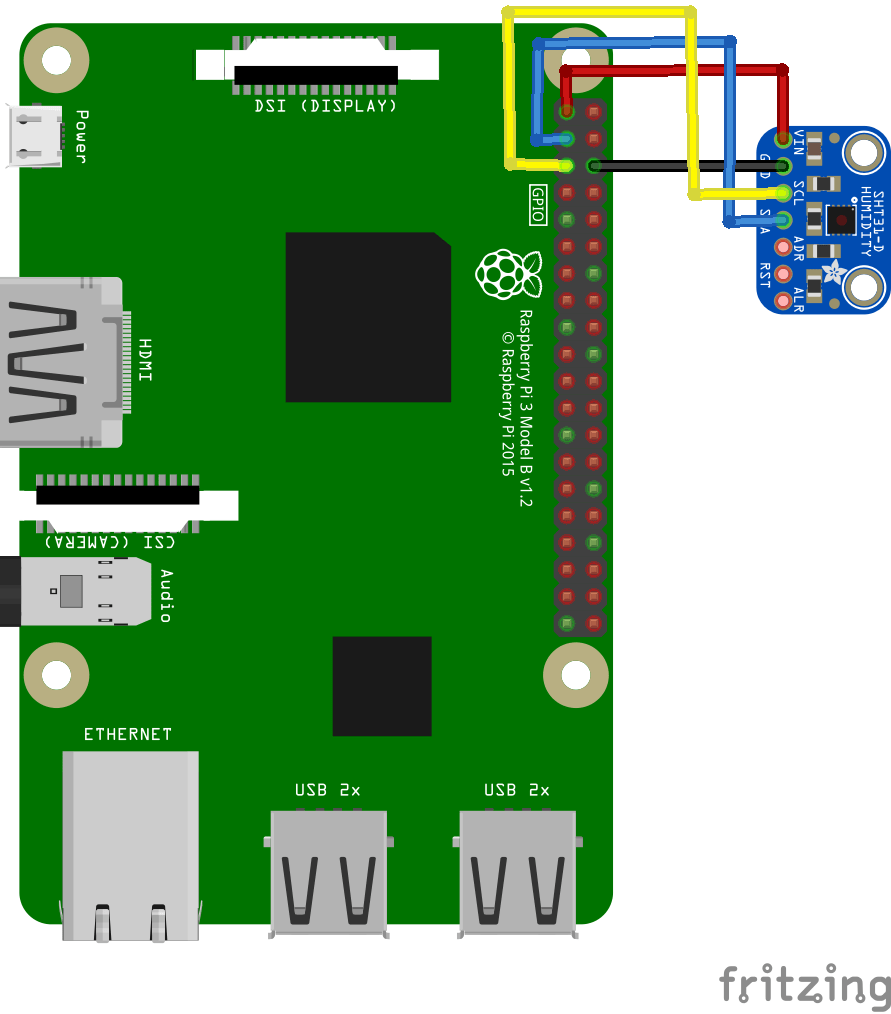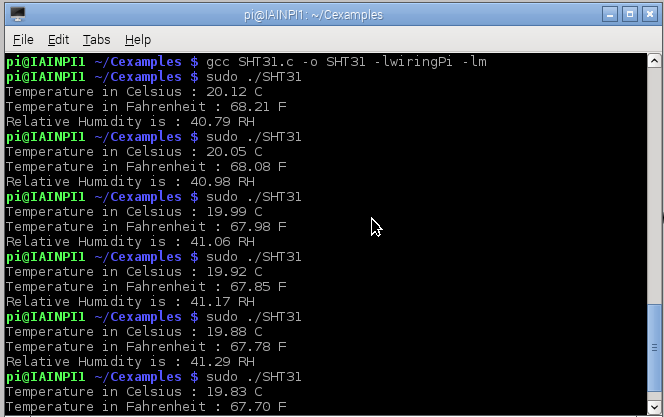In this example we will connect a SHT31 module to a Raspberry Pi
The new digital SHT3x humidity sensor series takes sensor technology to a new level. As the successor of the SHT2x series it is determined to set the next industry standard in humidity sensing. The SHT3x humidity sensor series consists of a low-cost version with the SHT30 humidity sensor, a standard version with the SHT31 humidity sensor, and a high-end version with the SHT35 humidity sensor. The SHT3x humidity sensor series combines multiple functions and various interfaces (I2C, analog voltage output) with a applications-friendly, very wide operating voltage range (2.4 to 5.5 V). The SHT3x humidity sensor is available in both large and small volumes.
The SHT3x builds on a completely new and optimized CMOSens® chip, which allows for increased reliability and improved accuracy specifications. The SHT3x offers a range of new features, such as enhanced signal processing, two distinctive and user-selectable I2C addresses, an alert mode with programmable humidity and temperature limits, and communication speeds of up to 1 MHz.
Features
| Size | 2.5 x 2.5 x 0.9 mm |
| Output | I²C, Voltage Out |
| Supply voltage range | 2.4 to 5.5 V |
| Energy consumption | 4.8µW (at 2.4 V, low repeatability, 1 measurement / s) |
| RH operating range | 0 – 100% RH |
| T operating range | -40 to +125°C (-40 to +257°F) |
| RH response time | 8 sec (tau63%) |
Layout
Here is a layout for this device
Code
save the file below as SHT31.c
[codesyntax lang=”cpp”]
// Distributed with a free-will license.
// Use it any way you want, profit or free, provided it fits in the licenses of its associated works.
// SHT31
// This code is designed to work with the SHT31_I2CS I2C Mini Module available from ControlEverything.com.
// https://www.controleverything.com/content/Humidity?sku=SHT31_I2CS#tabs-0-product_tabset-2
#include <stdio.h>
#include <stdlib.h>
#include <linux/i2c-dev.h>
#include <sys/ioctl.h>
#include <fcntl.h>
void main()
{
// Create I2C bus
int file;
char *bus = “/dev/i2c-1”;
if((file = open(bus, O_RDWR)) < 0)
{
printf(“Failed to open the bus. \n”);
exit(1);
}
// Get I2C device, SHT31 I2C address is 0x44(68)
ioctl(file, I2C_SLAVE, 0x44);
// Send high repeatability measurement command
// Command msb, command lsb(0x2C, 0x06)
char config[2] = {0};
config[0] = 0x2C;
config[1] = 0x06;
write(file, config, 2);
sleep(1);
// Read 6 bytes of data
// temp msb, temp lsb, temp CRC, humidity msb, humidity lsb, humidity CRC
char data[6] = {0};
if(read(file, data, 6) != 6)
{
printf(“Error : Input/output Error \n”);
}
else
{
// Convert the data
double cTemp = (((data[0] * 256) + data[1]) * 175.0) / 65535.0 – 45.0;
double fTemp = (((data[0] * 256) + data[1]) * 315.0) / 65535.0 – 49.0;
double humidity = (((data[3] * 256) + data[4])) * 100.0 / 65535.0;
// Output data to screen
printf(“Temperature in Celsius : %.2f C \n”, cTemp);
printf(“Temperature in Fahrenheit : %.2f F \n”, fTemp);
printf(“Relative Humidity is : %.2f RH \n”, humidity);
}
}
[/codesyntax]
compile this like the following
gcc SHT31.c -o SHT31 -lwiringPi - lm
run this like this
sudo ./SHT31
Output
This is what you should see in the terminal
Link
1PCS/LOT SHT31 Temperature & SHT31-D Humidity Sensor module Breakout Weather for Arduino



